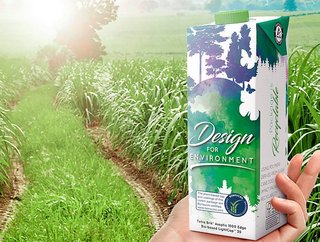Supporting a resilient and sustainable food supply chain
Author: Charlie Steer-Stephenson
From sourcing to production, transportation to packaging, the food supply chain has more stages than many of us realise. Not only does the global food system account for 26% of global greenhouse gas emissions, but, according to the United Nations Food and Agriculture Organisation (FAO), one third of all food produced is wasted. On top of this, global packaging emissions are expected to reach 1.34bn tonnes by 2030 – that’s more than global aviation or shipping. With fast-paced, on-the-go lifestyles becoming the norm for consumers, convenient and safe food packaging is in rising demand. While a recent survey by Boston Consulting Group revealed that 74% of consumers would pay more for sustainable packaging, rising prices and time-pressures mean that most people don’t check whether their food is wrapped in responsibly sourced packaging or not. Many large businesses, however, are now acting on their commitment to achieving zero waste to landfill and supporting a circular economy. This includes the world’s leading food processing and packaging solutions company, Tetra Pak, who is devoted to securing food safety and availability while reducing the supply chain’s impact on the planet.

